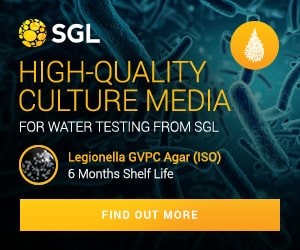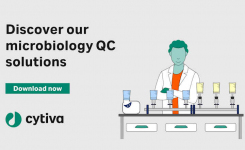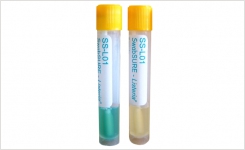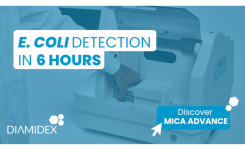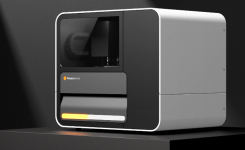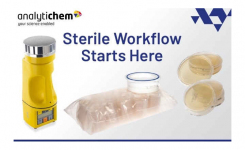Staphylococcal Identification in 90 Mins Direct from Positive Blood Cultures
go back to news archives| AdvanDx has received FDA 510(k) clearance for a fast, 90 minutes protocol for its S. aureus PNA FISH® and S. aureus/CNS PNA FISH® tests. The faster protocol reduces the PNA FISH turn-around time from the original 2.5 hours to 90 minutes by reducing PNA probe hybridization from 90 minutes to 30 minutes. Clinical validation studies performed at hospitals in the United States demonstrated excellent equivalence between the 90 minutes protocol and the original PNA FISH protocol, ensuring the faster protocol maintains the very high sensitivity and specificity required versus slower, conventional methods. Staphylococcus species are both the most frequent causes of bloodstream infections (BSI) and blood culture contamination. True infections caused by Staphylococcus aureus present considerable clinical challenges associated with increased mortality rates, prolonged hospital stays and add significant extra hospital costs.1 In the United States alone, 300,000 hospitalized patients contract a S. aureus infection leading to more than 12,000 deaths, 2.7 million excess LOS days and close to $9.5 billion in excess hospital charges.2 Blood culture contamination with Coagulase-Negative Staphylococci (CNS) on the other hand, account for up to 30% of all positive blood cultures and often result in a false diagnosis of a true staphylococcal bloodstream infection that leads to unnecessary coverage with broad-spectrum antibiotics, extra length of stay and unnecessary extra costs. As conventional identification methods can take several days to differentiate between true infection and contamination, clinicians must rely on empiric therapy which may result in either unnecessary or inadequate treatment. Since 2003, the use of PNA FISH for rapid identification of staphylococcal bloodstream pathogens has drastically improved therapy decisions and outcomes for patients with bloodstream infections by providing results in hours, instead of days to help physicians and pharmacists optimize antibiotic therapy earlier. A clinical study performed at the Washington Hospital Center (Washington, D.C.) demonstrated that rapid identification and notification of PNA FISH results reduced ICU and overall mortality rates by 82% and 53% respectively, while reducing antibiotic use for patients with CNS positive blood cultures. In a separate study performed at the University of Maryland Medical Center (Baltimore, MD) rapid PNA FISH results, helped reduce unnecessary vancomycin use by 4.5 doses, length of stay by 2 days and hospital costs by $4,005 for patients with CNS contaminated blood cultures.1,3 With the introduction of the 90 minutes PNA FISH protocol, laboratories will be able to further improve turn-around times for critical results and thereby help clinicians further improve antibiotic selection, care, and outcomes for patients with staphylococcal bloodstream infections. 'We are extremely pleased with the latest FDA clearances for the faster PNA FISH protocols for S. aureus and Coagulase-Negative Staph' said Thais T. Johansen, President and CEO of AdvanDx. 'Staphylococci present significant challenges for managing patient care and controlling hospital costs. With fast PNA FISH results, hospitals have a tool to help both improve patient care and reduce unnecessary costs,' Johansen concluded. References: 1. Ly et al. Ther Clin Risk Manag. 2008 Jun;4(3):637-40. 2. Noskin et al. Arch Intern Med. 2005 Aug 8-22;165(15):1756-61. 3. J Antimicrob Chemother. 2006 Jul;58(1):154-8. |
NOTE: This item is from our 'historic' database and
may contain information which is not up to date.
Source : AdvanDx View archived contact details
Posted on December 11, 2009


